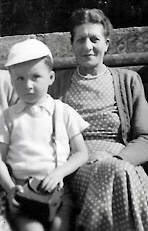Des Lewis will be 77 years old on 18 January 2025
Those who have read these episodic brainstorming reviews of mine must know they are very personal — rough-shod and spontaneous. Synchronicity and anagram mixed. I know they are not professional, never potentially publishable other than in the madness of my head, but I do hope they show grains of dark truth and cosmic panache.

These Des Lewis Gestalt Real-Time Reviews were founded in 2008.

‘What’s the loveliest word in the English language, officer? In the sound it makes in your mouth, in the shape it makes on the page? What do you think? Well now, I’ll tell you: E-L-B-O-W. Elbow.’ — THE SINGING DETECTIVE

“How shall a man find his way unless he lose it?” — Walter de la Mare

To any current genre author I have reviewed before — if you have a new story recently published or soon to be published in a collection or anthology, you may have a review by me of the story that also showcases where it is published. See HERE. (This is because I am no longer well enough to review as many books as I once did.)
Fresh Fictions, free to read HERE.
No AI input in preparation of my texts whatsoever.
THE NEW NONSCENIC
Photos here: https://conezero.wordpress.com/2024/02/24/d-f-lewis-recent-photos-1/
Pages 11 – 18
“Frankenstein had played God and he had played Frankenstein playing God. Perhaps God had had enough.”
I have spent nearly five years writing real-time reviews of books, mainly books of Horror or Weird Literature, sometimes science fiction and non-genre literature – and I have often referred in those reviews to a pet expression of mine that first saw the light of day as the subtitle of my book ‘Weirdmonger’ in 2003: ‘The Synchronised Shards of Random Truth and Fiction’.
I had heard great things of this novella by Stephen Volk and was made aware that it features Peter Cushing as the central character. It seemed an ideal choice for me and for exercising my brainstorming approach to reviews. I can already tell, having so far read the first seven pages, that it is likely to exceed even my highest expectations.
These few pages are full of memorable, artful expressions and homely philosophies, redolent, as all readers must instinctively know, of the characters in Horror films that Cushing played. And a real person literally comes off the page, while the poignant conjuring of the recent death of his wife Helen has really affected me (cf Reggie Oliver’s story ‘Flowers of the Sea’). Today, indeed, is an apt day for me to start reading this book as I am celebrating my 43rd wedding anniversary and the poignancy was redoubled as I could strongly empathise with this major event in his life, i.e. imagine what it would be like in similar circumstances: the feelings of an ending and a shambling struggle to restart simple domestic things as well as one’s occupation, as he thinks about his now halted habits like drinking tea on his balcony, and as he now meets passers-by on his seaside walk who recognise him. A new acting challenge. It is utterly superb writing, clear as well as being full of haunting feelings. I am confident this will continue. I shall return here after I’ve read some more of this book, but I shall be slowly savouring it, while sipping my tea. I predict it’s not to be rushed.
Pages 18 – 39
Like this author’s own famous or infamous “Ghostwatch” (that I watched ‘live’ and with real fear when it was first on TV many years ago), ‘Whitstable’ seems to be on the perfect cusp of those ‘synchronised shards of random truth and fiction’ as Cushing, on that seaside walk, meets a boy (cf the meeting with a girl in an old Frankenstein film), a boy who says he is scared of his Mum’s boyfriend and wants Cushing to protect him by tapping into Cushing’s own Errol Flynn mode in that scene (my favourite ever Horror scene watched in my younger days) when Dracula turned into (cigarette?) ash at a sudden beam of sunlight and Van Helsing’s crossed candlesticks! The naivety of Cushing, the paradoxically blatant subtlety of what may be happening to the boy, and other extensions of Cushing’s (now bereavement-affected) nature are skilfully summoned forth for the reader as he meets the boy’s Mum. I will not continue re-telling the plot so much for this review, but impart more how it affects me while picking out its leitmotifs toward a gestalt. I am even more confident that this will become a generally considered classic book.
It seems appropriate that I am heading into the Whit weekend as I read it. The inn is full of readers. And the perfect tension between fiction and truth seems likely to remain stable … for now.
Pingback: Whitstable: latest review and launch | Spectral Press
Pages 39 – 56
“Jeans told him nothing.”
A highly disturbing scene as a repercussion of earlier events with the boy, conveying mixed empathy and deep anxiety at the plight Cushing may find himself in because of his justly righteous or Christian naivety. Superb writing again. This book is so page-turning I am finding it difficult to resist rushing through – rather than savouring it, as I intended.
[On a more personal level, here is my short short (published in ‘frisson’ in 1997) of which I was reminded in the previous section of the book where we were told about being smuggled into X certificate films under age. Also, I lived in the Purley/Kenley, Surrey area for 24 years. And my current address features the word ‘Dulwich’ and I live not far along the coast, I guess, from Whitstable, where we also have similar feelings about sea gulls as described in the current section of the book. Perhaps I was destined to conduct this review.]
Pages 56 – 71
“But it was all too easy to face monsters with a screenplay in your hand.”
Cushing digs the hole he’s in deeper, as if the Earth itself is a Trojan Horse to reach his late wife Helen in Heaven. Or as if acting is a Trojan Horse, as he acts his way through an interview with a Police Detective whom he knows, acting about asking questions about acting, testing the ground. Only for Cushing to learn that someone’s already digging a hole for him, the mother’s boyfriend, getting his spade in first. The text truly makes the reader feel guilty along with Cushing, even though neither of you are guilty. It’s a story for our times, where some old men are guilty, some not. But who can transcend the evidence to judge which is which? This is not only a classic work of fiction, it seems also to be becoming an important one, too, a frame from which to hang life’s dilemmas.
The text also seems to be generously peppered with some skilfully disarming turns of phrase, that may only become meaningful in hindsight, e.g. when we are told that the detective’s “fly zip was distressingly taut.”
Pages 71 – 90
“What had Van Helsing said in Brides? That he was studying a sickness. A sickness part physical, part spiritual…”
More driven prose and dialogue, with mellifluous clarity but with underlying nagging complexities, together with a sense of growing confidence in the righteous quest that rubs off on us. We know what side we’re fighting on, even if beset by dreams and temptations not to stand up for things when one may consequently be knocked down … and Proustian memories. And figures from the past intervening in visionary walk-on or skip-off parts in the present moment if not in the flesh. Do it for Helen, I say, whose name, by rhyming with Heaven, hopefully obliterates any other assonance which the name may also possess!
Wonderful ‘genii loci’ of Canterbury and Whitstable evoked. I could even smell the fish in the latter place. More neat concepts, like the greengrocer who often tried jokingly to sell Cushing some garlic!
Also there is evoked a memory of the time when cinemas showed films in a continuous programme, and I often watched a particular film from its middle back to that middle amid the cigarette smoke and surrounding snogging couples – which memory obliquely seems to throw a new light or shade onto this whole book, I guess – [and a memory that I once lived in Morecambe in the late Sixties]…
Pages 91 – 113
“‘Horror isn’t everywhere,’ Cushing said. ‘But horror is somewhere, every day.'”
A brilliant scene that I should not give anything away about for fear of spoiling it for you. A culmination of future’s fear and nostalgia’s comfort, together with all the wisdom represented by that quotation I’ve just given above. I wonder, too, whether this book was written before the recent ‘famous’ scandals…
Whether it was or not, it is a thought-provoking clash we read about in these pages that makes fiction potentially the strongest force for good in the world.
Just imagine a hammer coming down, attempting to nail evil; think about what I said earlier about ‘middle to middle’, then think of the raising of the hammer as the past, the hitting of the nail the present, and raising it again the future… As many times as it takes. This is my concept, not necessarily the book’s. But it is a concept the book effectively gave me to create from it.
The cinematic intercutting of Hammer Film with such a hammer… brilliant, whether intended or not.
Pages 113 to end
“His head was too thick with slumber to sort fact from fiction and he wondered if he was waking up or acting waking up.”
A satisfying coda where Triumph cycled on set.
The ambivalence of life is fully adumbrated, but I feel that a certainty has been given me, at my age, to face whatever I need soon to face. Yet certainty and ambivalence can transcend each other, and bedfellows, like Morecambe and Wise, no longer exist.
Actors playing either good or evil can be either good or evil in real life, given the forbearance of those synchronised shards of random truth and fiction. As I said before, this work is a frame from which to hang our own differing dilemmas. An important book to fit all our walk-on or skip-off parts.
A classic extrapolation from the make-believe we all try to transcend on a daily basis.
Meanwhile, a fitting tribute to Peter Cushing.
I shall now read the Afterword by Mark Morris, but in keeping with all my RTRcausals, I shall only review the fiction itself.
The cover art is by Ben Baldwin.
I shall now listen to Elgar’s Sospiri
end.
Pingback: A Smorgasbord of reviews – 28:05:2013 | Spectral Press
Another review by me of the Volkyries: https://dflewisreviews.wordpress.com/2014/01/21/seaside-terror/#comment-1662